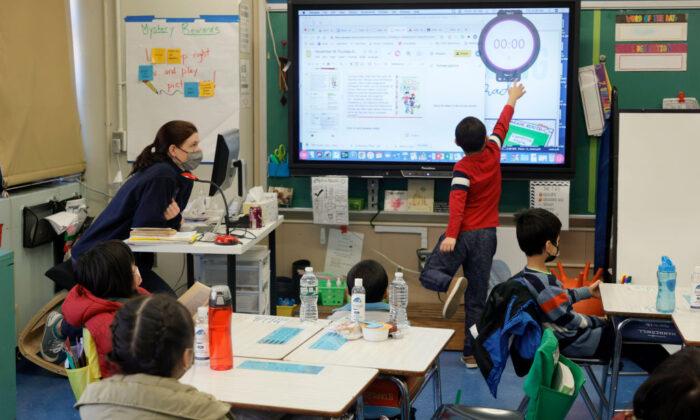The U.S. Chamber of Commerce signaled the alarm after the National Assessment of Educational Progress (NAEP) recently revealed the grim performance of fourth- and eighth-grade American students in math and reading as test scores declined in the single largest drop since record keeping began in 1992.
“This is a wakeup call for our country—for policymakers, leaders in public education, and the business community,” said Cheryl Oldham, U.S. Chamber of Commerce vice president of education policy. “These results show that learning loss has risen to historic levels in part due to the impact of the pandemic, which only exacerbated existing failures in the education system.
“Even before the pandemic, NAEP results were showing students making little to no progress in reading and math after seeing steady increases for two decades.”
Eighth-grade math performance dropped eight points since 2019, and about a third of students in both grades can’t read at the minimum required level, according to the NAEP report. The decline has affected nearly every single state.
While reading levels went down to 1992 levels, almost four in 10 eighth-graders failed to grasp basic math concepts. Eighth grade is “pivotal” in a student’s math education as a failure here “could alter the trajectories and life opportunities of a whole cohort of young people, potentially reducing their abilities to pursue rewarding and productive careers in mathematics, science, and technology,” said Daniel J. McGrath, acting associate commissioner for assessment for the National Center for Education Statistics (NCES).
Impact of Prolonged Lockdown Restrictions
NCES Commissioner Peggy G. Carr talked about the “profound toll” of the pandemic, while Julia Rafal-Baer, a K-12 education expert who serves on the National Assessment Governing Board, said that “COVID was exceptionally disruptive, and we’re running out of time to ensure that kids can indeed recover from this level of unfinished learning,” according to the74Million website.Federal officials, such as Secretary of Education Miguel Cardona, have not directly pointed at the COVID-era restrictions imposed on students like stay-at-home orders and virtual learning mandates to be directly responsible for the drop in test scores.
Reasons Beyond COVID?
However, looking back to pre-pandemic 2019, average reading scores for students at both grades four and eight were lower compared to 2017. As for math scores, fourth-grade performances were higher in nine states and lower in three; and for eighth grade, six states performed worse and three better, underlining a clear downward trend.Some social commentators are pointing to other issues at hand that could be affecting children’s school performances like school choice.
Politics is turning into a major factor in school education as fractious issues such as critical race theory (CRT) and gender discussion have become serious areas of contention between parents and teachers, and have also been blamed for the fall in standards.
Lower expectations and a shift from math and reading toward CRT does not fare well toward creating literate graduates.
“Instead, a concern for learning has been replaced by an aggressive political agenda designed to instill doubt, mental pain, and low expectations in students. This race-centered agenda also seeks to divide children from teachers, their own communities, and from each other.
“This harmful trend can only be resolved through policies that return high-quality academic standards to public education and well-funded and supportive education-choice programs that allow families to access alternatives services to meet the learning needs of all children.”





